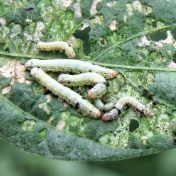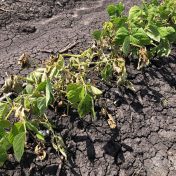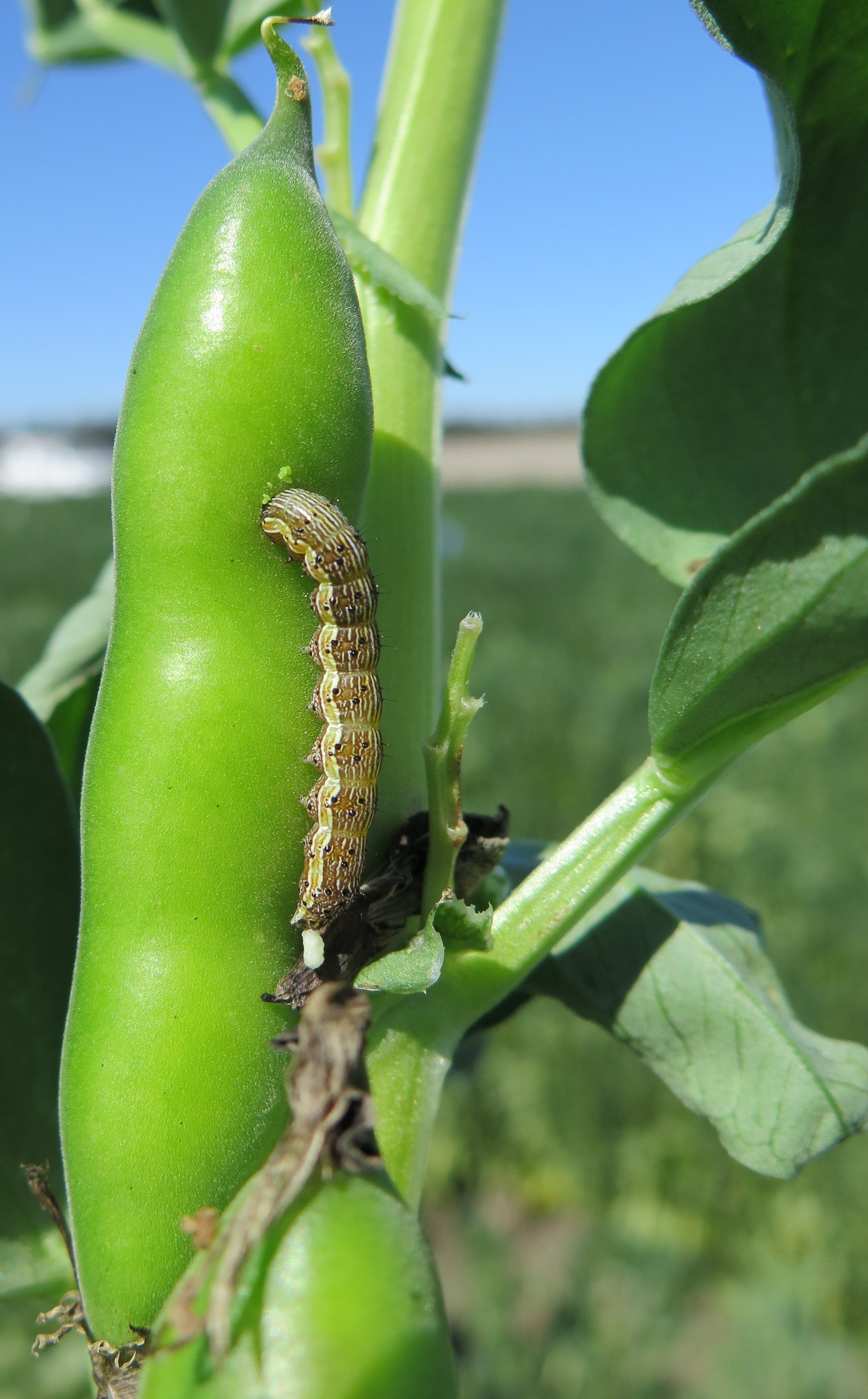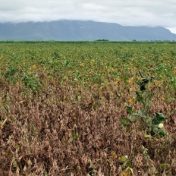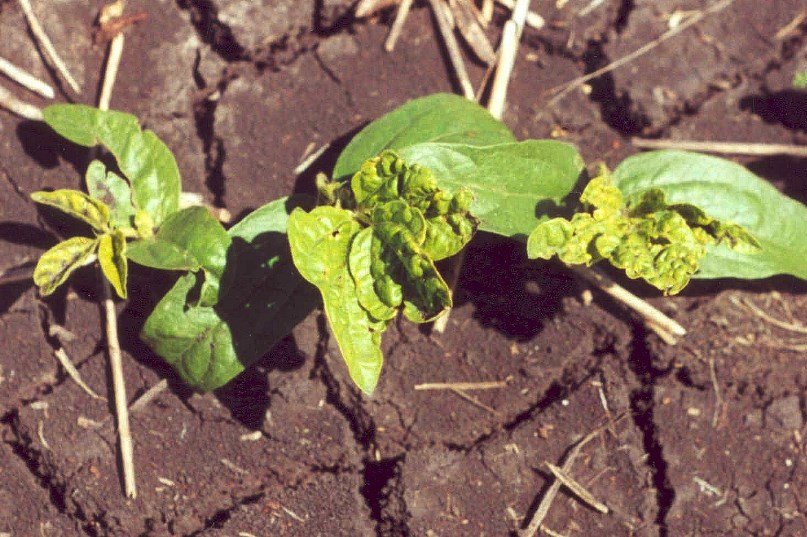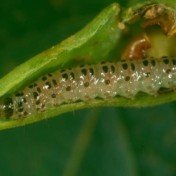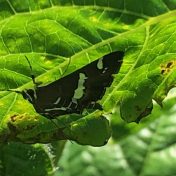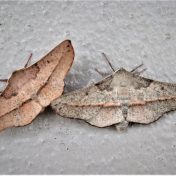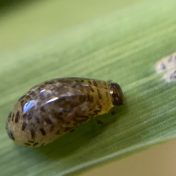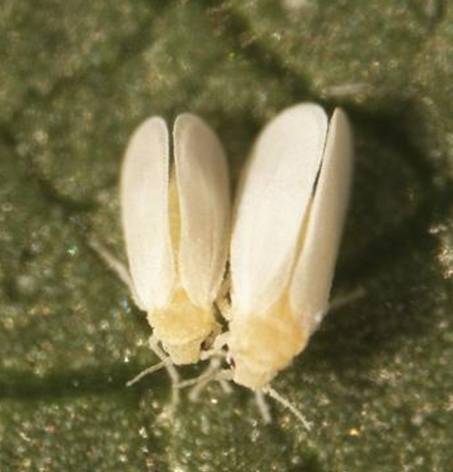Update (20 April): There are reports that cluster caterpillars are also switching from leaf to pod feeding in maturing crops in the Mackay region, with a report of 5-10 larvae per square metre in many crops. Growers and consultants in all coastal regions are urged to check their crops for late season cluster caterpillars. Reports have just come to hand… Read more »
Several growers and agronomists across southern Queensland have reported extensive damage to their mungbean crops due to Fusarium wilt this season. Large areas of affected paddocks have plants that are wilted or dead, resulting in significant yield losses. The results of DAF annual disease surveys over the last five years have found that the disease is most common in crops… Read more »
Each year NSW Department of Primary Industries conducts a Helicoverpa insecticide resistance surveillance program in the major summer cropping regions of NSW and QLD, focussed on detecting Helicoverpa resistance to the insecticides indoxacarb, emamectin benzoate and chlorantraniliprole. The program provides growers and advisors with an early warning system for potential resistance hot-spots in the northern region, and is essential for… Read more »
Since early March 2020, soybean growers in the Burdekin have seen significant damage to their crops. Close inspection of crops found many with soybean stem fly damage as well as leaf spots, and stem and pod lesions. Severely affected plants have suffered complete and rapid leaf defoliation. In many crops, plants did not collapse until the late pod-fill stage, when… Read more »
Leafhoppers (also known as jassids) and seedling thrips are extremely abundant in Central Queensland this summer. The vegetable leafhoppers (Austroascra viridigrisea) are very much an ‘in your eye’ pest, with swarms of the small (3mm) bright green critters flying up when disturbed in-crop. In contrast, the cotton seedling or cereal thrips (Thrips tabaci) are hiding out of sight, down in… Read more »
Observations from recent Pulse Check field days in CQ Bean podborer (Maruca vitrata) and beet webworm (Spoladea recurvalis) are on the move in Central Queensland (CQ) mungbean crops. While both species may also be active in other mungbean regions, bean podborer is most likely to occur in coastal (e.g. the Burdekin) and subcoastal (Biloela, Kingaroy) regions. Bean podborer is a… Read more »
Beet webworm (Spoladea recurvalis) moths are being seen in huge numbers in mungbean crops at present. The moths are brown with white bands across the wings, and rest with their wings swept back. Those familiar with bean podborer (Maruca vitrata) will see the similarities between the two moths – both small brown moths that move readily when disturbed. At rest,… Read more »
A plague of a native geometrid moths (Antictenia punctunculus – no common name) has visited southern Queensland, with huge numbers of moths reported. The species belongs to the twig looper family (Family Geometridae) and occurs in Queensland, New South Wales and the ACT. The moths have a 35-40 mm wingspan and distinctive colour pattern. The adults are a greyish brown… Read more »
Over the past week, the Queensland Department of Agriculture and Fisheries (DAF) has received a number of enquiries about leaf damage in millet crops. The culprit is a native beetle (Oulema spp.), a member of the chrysomelid (leaf beetles) family. The larvae of the beetle are doing the leaf feeding. They are small, slimy-looking grubs with a hunched appearance. Fun… Read more »
The first major outbreak of silverleaf whitefly (SLW) in Australia occurred in 2001-02 in central Queensland. Although it hasn’t occurred again in such biblical proportions, SLW has spread across Australia and is still a pest to watch in many cotton crops, as the honeydew it secretes contaminates the lint. The original SLW threshold matrix developed in central Queensland recommended looking… Read more »
